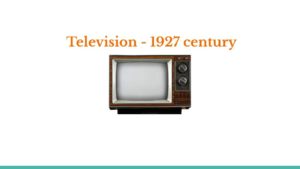The Idea of Resistance and Political Protest:
● When we first think about political protest, what comes to mind?
○ Attempts to change to laws or legislation
○ Organised political movements
○ Public protests
○ Petitions, marches
● However, we can look at political protest in terms of:
○ Cultural resistance
○ Everyday people
● Why look at cultural resistance?
○ Overt political protest is uncommon. When it occurs, it often results in a backlash.
○ Even if overt political protest does results in changes in legislation, it won’t necessarily change public
opinion.
○ Culture is what influences people’s hearts, minds and opinions. This is the site of popular change.
Key idea: the political, personal and cultural are always intertwined
- The idea of culture as a site of political struggle for Ghost Town see below)
- The the theory of hegemony – Gramsci
cultural hegemony functions by framing ideologies of the dominant social group as the only legitimate
ideology.
Key Concepts:
● Cultural resistance
● Cultural hegemony
● Subcultural theory
Subcultural Theory: The Birmingham School (1970s)
● In the 1970s, a group of cultural theorists in Birmingham applied Gramsici’s theories to post-war
British working-class youth culture
● Looked at working class cultures like the teddy-boys, mods, skinheads, and punks – subcultures
unified by shared tastes in fashion, music and ideology.
● They argued argued that the formation of subcultures offered young working class people a solution
to the problems they were collectively experiencing in society.
lyrics for essay-
- Slavery’s still alive, check Amendment 13
Not whips and chains, all subliminal
Instead of ‘nigga’ they use the word ‘criminal’
2. We staring in the face of hate again
The same hate they say will make America great again
3. Police and policies patrol philosophies of control
A cruel hand taking hold.
4. Black bodies being lost in the American dream
5. Prison is a business, America’s the company
Postcolonialism:
This post is for students (and teachers) who would like some resources – videos, quotes, theorists, key texts, key words etc to help them think about the topic of POSTCOLONIALISM, which may appear in a range of creative, media, culture, communications, English, History and other courses.
Overall, this is a topic that concerns IDENTITY and REPRESENTATION. In other words, where does our identity come from? How is our identity formed? How do we understand our own identity and how is our identity represented in the local, national and global media? You can look at another post that looks at identity, representation and the self. But here it is specifically looking at identity and representation through the lens of Empire and Colonialism.
ORIENTALISM:
The Link between culture, imperial power & colonialism
the power to narrate, or to block other narratives from forming or emerging, is very important to culture and imperialism
Edward Said Culture and Imperialism, 1993: xiii
critically looking at culture- key figure Edward Said.
Jacques Lacan- (the other)
search for identity, theory of baby’s first time looking in the mirror is when we first feel consciousness. we see ourselves differently for how to feel inside.

